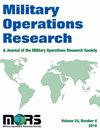不确定考虑集下的需求估计
IF 0.7
4区 管理学
Q3 Engineering
引用次数: 3
摘要
在“不确定考虑集下的需求估计”一文中,Jagabathula、Mitrofanov和Vulcano研究了考虑-选择(CTC)模型的统计特性,该模型作为经典随机效用(RUM)模型的替代方案在操作文献中引起了最近的关注。CTC模型的一般类别由排名表和考虑集上的一般联合分布定义。从CTC和RUM类在解释力方面是等效的这一重要结果出发,作者描述了CTC模型被识别的条件。然后,他们提出了期望最大化(EM)方法,以可证明收敛的外逼近算法为基础,解决CTC模型不同子类的相关估计问题。最后,在一个合成数据集和两个真实数据集上测试了CTC模型的子类:一个来自杂货店连锁店,一个来自点对点(P2P)汽车共享平台。当训练数据有噪声时(即,交易记录不一定反映实际库存记录),当训练数据集和测试数据集之间存在显著的不对称性时,评估CTC模型在预测准确性方面往往优于RUM模型的结果是一致的。这些条件在P2P共享平台和从事长期预测(例如,学期)或地理汇总预测(例如,配送中心级别的预测)的零售商中自然得到验证。本文章由计算机程序翻译,如有差异,请以英文原文为准。
Demand Estimation Under Uncertain Consideration Sets
In “Demand Estimation Under Uncertain Consideration Sets,” Jagabathula, Mitrofanov, and Vulcano investigate statistical properties of the consider-then-choose (CTC) models, which gained recent attention in the operations literature as an alternative to the classical random utility (RUM) models. The general class of CTC models is defined by a general joint distribution over ranking lists and consideration sets. Starting from the important result that the CTC and RUM classes are equivalent in terms of explanatory power, the authors characterize conditions under which CTC models become identified. Then, they propose expectation-maximization (EM) methods to solve the related estimation problem for different subclasses of CTC models, building from the provably convergent outer-approximation algorithm. Finally, subclasses of CTC models are tested on a synthetic data set and on two real data sets: one from a grocery chain and one from a peer-to-peer (P2P) car sharing platform. The results are consistent in assessing that CTC models tend to dominate RUM models with respect to prediction accuracy when the training data are noisy (i.e., transaction records do not necessarily reflect the physical inventory records) and when there is significant asymmetry between the training data set and the testing data set. These conditions are naturally verified in P2P sharing platforms and in retailers working on long-term forecasts (e.g., semester long) or geographical aggregate forecasts (e.g., forecasts at the distribution center level).
求助全文
通过发布文献求助,成功后即可免费获取论文全文。
去求助
来源期刊

Military Operations Research
管理科学-运筹学与管理科学
CiteScore
1.00
自引率
0.00%
发文量
0
审稿时长
>12 weeks
期刊介绍:
Military Operations Research is a peer-reviewed journal of high academic quality. The Journal publishes articles that describe operations research (OR) methodologies and theories used in key military and national security applications. Of particular interest are papers that present: Case studies showing innovative OR applications Apply OR to major policy issues Introduce interesting new problems areas Highlight education issues Document the history of military and national security OR.
 求助内容:
求助内容: 应助结果提醒方式:
应助结果提醒方式:


